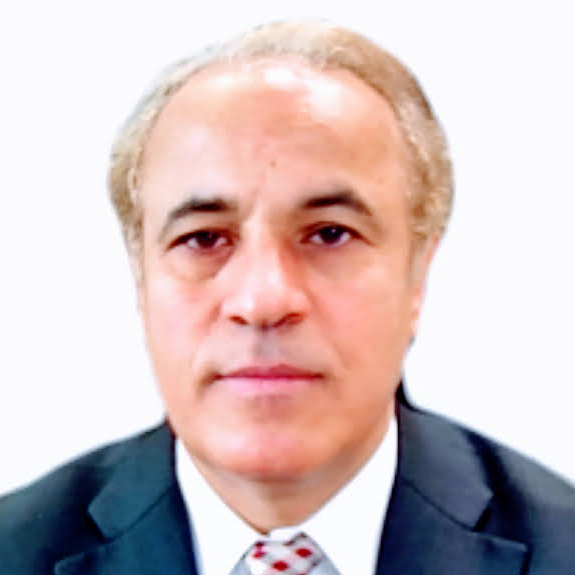
BEN ABDALLAH Abderazek
Professor, Regent (Dean of the Undergraduate school)
- Affiliation
- Department of Computer Science and Engineering/Division of Computer Engineering
- Title
- Professor, Regent (Dean of the Undergraduate school)
- benab@u-aizu.ac.jp
Education
- Courses - Undergraduate
- Computer Architecture, Undergraduate level, UoA, 2018 – present
- Introduction to Computer Systems, Undergraduate level, UoA, 2018 – present
- Parallel Computer Systems, Undergraduate level, UoA, 2018 – present
- Computer System Engineering, UoA, 2008-2018
- Embedded Systems, UoA, 2008-2016
- Logic Circuit Design Exercises, UoA, 2008-2018
- Computer Architecture Exercises, UoA, 2008-2018
- Courses - Graduate
- Neuromorphic Computing, UoA, 2023 – present
- Embedded Real-Time Systems, UoA, 2008 – 2022
- Multicore Computing, UoA, 2010-2015
- Advanced Computer Organization, UoA, 2008 – 2023
- Network-on-Chip, Hong Kong University of Science and Technology (Invited), 2010-2013
Research
- Specialization
-
Communication and network engineering
Computer system
High performance computing
Intelligent informatics
- Educational Background, Biography
-
- 1988.6 Graduated from the Lycée technique 9 Avril de Sfax, High School
- 1988.9-1994.6 B.S. in Electrical Engineering, Sfax Univ. & Huazhong Univ. of Science and Technology
- 1994.9-1997.6 M.S. in Computer Engineering, Huazhong Univ. of Science and Technology
- 1999.4-2002.3 Ph.D. in Computer Engineering, National Univ. of Electro-communications at Tokyo
- 2002.4-2007.3 Research Associate, National Univ. of Electro-communications, Tokyo
- 2007.4-2007.9 Assistant Professor, National Univ. of Electro-communications, Tokyo
- 2007.10-2011.3 Assistant Professor, UoA
- 2011.4-2012.3 Associate Professor, UoA
- 2012.4-2014.3 Senior Associate Professor, UoA
- 2014.4-present Professor, UoA
- 2014.4-2022.03 Head, Computer Engineering Division, UoA
- 2014.4-present Member, Education and Research Council, UoA
- 2022.4-present Dean, School of Computer Science and Engineering, UoA
- 2022.4-present Regent, The University of Aizu
Invited Lecturer:- 2010-2013 Visiting Professor, Department of Computer Science and Engineering, Hong Kong University of Science and Technology
- 2011-2015 Visiting Professor, School of Software Engineering, Huazhong University of Science and Technology
- 2022 - present Lecturer, Graduate School of Science and Technology, Kyoto Institute of Technology
- Current Research Theme
- Research and Development of Algorithms and Systems for AI-Enabled Automotive Edge Computing
- Key Topic
- Computer Architecture; Network-on-chips and Advanced Interconnect Technologies; Energy-efficient and Neuromorphic Computing Systems; Automotive Edge Computing; Fault-tolerance
- Affiliated Academic Society
- IEEE Senior Member; ACM Senior Member; Member of IEEE Circuits and Systems; Member of IEEE computer society Technical committee on computer architecture; Member of the European Alliance for Innovation; member of IEICE (2007-2019)
Others
- Hobbies
- Reading and visiting historical places
- School days' Dream
- To become a school teacher!
- Motto
- Simple is the best!
- Favorite Books
- " You Can Heal Your Life "?
- Messages for Students
- For success in your education and research, maintaining focus and organization is essential.
Main research
- Advanced On-chip Interconnects (2D/3D, Si-Photonics, Hybrid)
-
Complex SoCs contain dozens of components made of processor cores, DSPs, memory, accelerators, and I/O, all integrated into a single die area of just a few square millimeters. Such complex systems will be interconnected via a complex on-chip interconnect closer to a sophisticated network than current bus-based solutions. This network must provide high throughput and low latency while keeping area and power consumption low. Our research effort is about solving several design challenges to enable such new paradigm in massively parallel many-core systems. In particular, we are investigating fault-tolerance, 3D-TSV integration, photonic communication, low-power mapping techniques, and low-latency adaptive routing.
...read more
- AI-Enabled Automotive Edge Computing
-
Driven by the advances in AI, computer architecture, and sensor technologies, automobiles, including electric vehicles (EVs) and self-driving cars, are transforming into sophisticated high-performance computing platforms. As the advancement of these computing systems accelerates, they will be running a wide variety of applications, including sensing, navigation, etc., using specialized deep neural network systems and complex communication protocols (i.e., Ethernet, SDVs) with safety and reliability support. We study advanced automotive computing systems, including AI-powered EV Energy Harvesting and Management, EV Campus Energy Trading, and AI-enabled automotive ICs.
...read more
- Brain-inspired Algorithms and Systems
-
Brain-inspired (Neuromorphic) computing uses spiking neuron network models to solve machine learning problems in a more power/energy-efficient way when compared to the conventional artificial neural networks.We research adaptive low-power spiking neuromorphic systems and SoCs empowered with our earlier developed fault-tolerant three-dimensional on-chip interconnect technology. In particular, we investigate innovative algorithms and neuromorphic systems, including adaptive configuration methods to enable the reconfiguration of different network parameters (spike weights, routing, hidden layers, topology, etc.), fault-tolerance, thermal-aware mapping methods, and on-line learning algorithms. The target applications include anthropomorphic robotics and edge computing.
...read more
- Power/Energy-Efficient Computing Architectures and Systems/SoCs
-
Our research in power and energy-efficient computing systems is essential to meeting the growing demand for more powerful and sustainable technology. As society increasingly relies on computing devices, managing their energy consumption becomes crucial. By developing efficient computing systems, we can significantly reduce energy costs, minimize environmental impact, and extend the battery life of portable devices. In large-scale data centers, enhancing energy efficiency leads to substantial cost savings and a reduced carbon footprint. Our work in this field fosters innovation in hardware and software design, paving the way for smarter, greener technologies that benefit both users and the planet.
...read more






